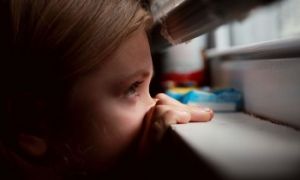Early childhood education thrives on diversity. Multicultural teams bring rich perspectives, lived experiences, and linguistic variety that enhance learning environments for children and educators alike.
In this article, we explore how services can support respectful language use, address feelings of exclusion, and uphold the principles of the Early Years Learning Framework (EYLF) and National Quality Standard (NQS)—without compromising identity or connection.
In some settings, tensions can arise when educators speak in their home language during work hours—especially if others feel excluded or unsure how to respond.
This issue isn’t about banning languages or enforcing uniformity. It’s about fostering inclusive communication, cultural safety, and professional clarity in environments where multilingualism is both a strength and a responsibility.
Multilingualism Is Not a Risk—It’s a Resource
In early childhood education, multilingualism is not only common—it’s encouraged. The EYLF (Early Years Learning Framework) supports children and educators in expressing identity, culture, and language. Outcome 2 explicitly promotes children’s connection to their world, which includes exposure to diverse languages and cultural practices.
What Services Can Do When Language Feels Excluding
While multilingualism is a strength, discomfort can arise when some team members feel left out of conversations. Here’s how services can respond constructively:
1. Acknowledge the Feeling Without Blaming the Culture
Feeling excluded is valid—but the solution isn’t banning languages. Instead, open dialogue can help unpack whether the issue is language, tone, or context.
Clarify Expectations Around Professional Communication
Services can set clear guidelines:
-
Use English during collaborative tasks, child supervision, and team meetings.
-
Encourage home languages during breaks, cultural events, or with families who share that language.
3. Embed Anti-Bias Training
Many educators in the thread suggested team training in anti-bias principles, cultural safety, and inclusive communication. This helps teams reflect on unconscious bias and build respectful, inclusive cultures.
4. Create Space for Identity and Belonging
Multilingual staff should feel safe to express their identity. Services can:
-
Celebrate language diversity through displays, songs, and storytelling.
-
Invite educators to share their languages with children in intentional ways.
Practical Phrases for Inclusive Communication
For English-speaking educators feeling excluded, gentle prompts can help:
-
“I’d love to be part of this conversation—could we switch to English for a moment?”
-
“Can you help me understand what you were discussing? I’m curious.”
For multilingual educators:
-
“We were just chatting in [language]—would you like us to translate?”
-
“Let’s make sure everyone’s included—how about we switch to English for now?”
Multicultural teams are a gift to early learning. They offer children real-world exposure to diversity, empathy, and global citizenship. But inclusion must be intentional. Rather than policing language, let’s build cultures of respect, curiosity, and shared understanding—where every educator feels seen, heard, and valued.
Further Reading
Creating A Multicultural Environment In An Early Childhood Setting
Examples Of How Diverse Cultures Can Be Incorporated
Cultural Competence In Early Childhood Settings
Celebrating Multiculturalism in Childcare







 As an Educator in Australia, your pay rate falls under the Children’s Services Award 2010. This award states the minimum amount that an employer can
As an Educator in Australia, your pay rate falls under the Children’s Services Award 2010. This award states the minimum amount that an employer can When working as a qualified Early Childhood Teacher (with a university degree) within a service, your rate of pay will come from the Educational Services
When working as a qualified Early Childhood Teacher (with a university degree) within a service, your rate of pay will come from the Educational Services When working as a Diploma Qualified Educator your pay rate is from the Children's Services Award 2010. This Award states your minimum rate of pay
When working as a Diploma Qualified Educator your pay rate is from the Children's Services Award 2010. This Award states your minimum rate of pay When working as a Cert 3 Qualified Educator, your pay rate is from the Children's Services Award 2010. This Award states your minimum rate of
When working as a Cert 3 Qualified Educator, your pay rate is from the Children's Services Award 2010. This Award states your minimum rate of Educational Leaders play a crucial role in their early childhood service by ensuring that the educational program aligns with best practices and supports the holistic
Educational Leaders play a crucial role in their early childhood service by ensuring that the educational program aligns with best practices and supports the holistic In early childhood education and care, ratios are more than a technicality—they are a frontline safeguard. Every child deserves responsive supervision, emotional connection, and developmental
In early childhood education and care, ratios are more than a technicality—they are a frontline safeguard. Every child deserves responsive supervision, emotional connection, and developmental With the new national child safety reforms kicking in on 1 September 2025, early childhood services like yours have a real opportunity to lead the
With the new national child safety reforms kicking in on 1 September 2025, early childhood services like yours have a real opportunity to lead the Here’s a comprehensive Mobile Phone and Smart Watch Policy tailored for early childhood education and care (ECEC) services in Australia, aligned with the latest 2025
Here’s a comprehensive Mobile Phone and Smart Watch Policy tailored for early childhood education and care (ECEC) services in Australia, aligned with the latest 2025 The Sea of Fish Challenge is a national initiative that invites children, educators, families, and communities to create and display fish artworks as a symbol
The Sea of Fish Challenge is a national initiative that invites children, educators, families, and communities to create and display fish artworks as a symbol Across the early childhood education and care sector, educators are sounding the alarm: current staffing ratios are insufficient to deliver safe, meaningful, and developmentally appropriate
Across the early childhood education and care sector, educators are sounding the alarm: current staffing ratios are insufficient to deliver safe, meaningful, and developmentally appropriate


